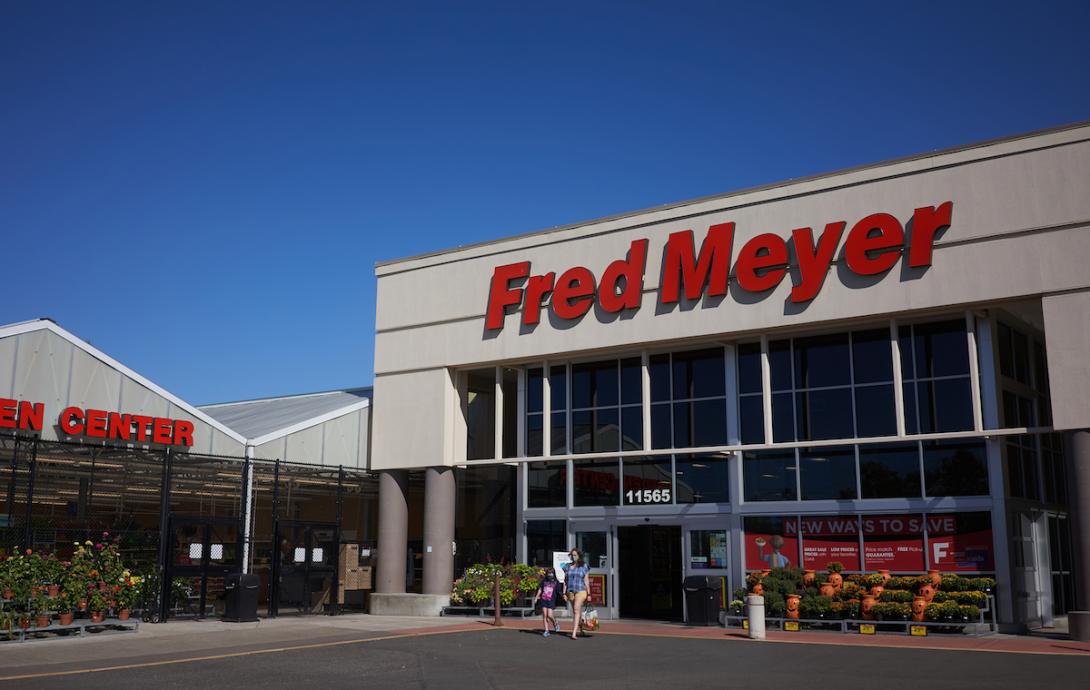
This story has been updated with comment from Kroger.
A proposed deal that could affect pharmacies comprising nearly a third of Oregon’s retail prescription drug market is now on trial in a Portland federal court.
Lawyers for the Federal Trade Commission began arguments Monday in U.S. District Court that grocery giant Kroger’s $24.6 billion plan to purchase the Albertsons grocery chain will drive up consumer prices and hurt workers. They also argued that the acquisition would mean Kroger would have less of an incentive to offer retail pharmacy services as a way to attract and keep customers.
The merger of the country’s two largest grocery chains has sparked major concerns about pharmacy access in Oregon. The state has seen its number of retail pharmacies wither in recent years and now has the second-fewest of any state, according to a recent Associated Press analysis.
The two chains are the largest retail pharmacy providers in the state, and regulators and elected officials have raised alarms that despite promises to preserve access, the deal may instead eliminate competition that provides needed benefits to Oregonians.
Earlier this year, Oregon Attorney General Ellen Rosenblum joined nine of her counterparts in other states in backing the FTC’s efforts to derail the deal. On Wednesday, Oregon Sen. Ron Wyden blasted the deal on social media.
“When something is rotten to the core, it gets put in the trash can,” he wrote. “That’s where this proposed Kroger/Albertsons merger belongs because it would hurt consumers & workers at both mega-chains.”
Wyden along with three other senators and 24 House members submitted a brief opposing the deal earlier this month. According to the brief, the 2014 merger of Albertsons and Safeway resulted in dozens of pharmacies closing in Oregon. For example, Klamath Falls lost its only downtown pharmacy as a result of the merger.
Kroger has argued that it has a record of reducing consumer prices. In response to antitrust concerns, both companies have released a plan to divest hundreds of their stores to C&S Wholesale Grocers, a company that has a scant record of operating pharmacies successfully.
In July, Kroger and Albertsons published a list of stores they intend to sell off if the merger goes through. The list included 62 in Oregon — including 4 QFC stores in Portland, several Albertsons and a large number of Safeways in the tri-county region. The list also includes 124 stores in Washington state including Vancouver locations that include eight Safeways and a QFC.
A Kroger spokesperson told The Lund Report in an email that the chain will not close any stores or pharmacies as a result of the merger.
"Post-transaction, Kroger will operate the pharmacies that are part of the Albertsons stores that it acquires," the spokesperson wrote. "The divestiture plan with C&S will extend a well-capitalized competitor into new geographies, and C&S’s strong operational focus and financial resources will position all pharmacies associated with divested stores to successfully operate and serve their communities for years to come.”
State regulators have raised concerns, noting in a report in June that that despite claims that C&S would keep the pharmacies open, the consumers may lose access to pharmacies because C&S “does not have the experience or track record operating pharmacies to allow them to offer lower prices for prescriptions” and will not be able to negotiate contracts with all of the companies that manage benefits.
The state report also said the merger would make Kroger the largest pharmacy provider in the state and that the deal could “significantly impact access to care, particularly in rural communities, if the transaction results in store closures, disruptions to operations, or changes to accepted insurance plans.”
FTC lawyers have called the divestment plan inadequate, describing it in a legal filing as “a patchwork of assets cobbled together by Kroger’s antitrust lawyers, not a standalone business likely to succeed.”
U.S. District Judge Adrienne Nelson is hearing the case.